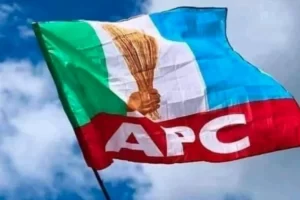The immediate past Nigerian Ambassador to Algeria, Mohammed Mabdul, shares his duty tour experience in this interview with ADELANI ADEPEGBA and GIFT HABIB
You just ended your duty tour as Nigerian Ambassador to Algeria. In what ways did you add value to the relations between Nigeria and Algeria?
The state of bilateral relations between Algeria and Nigeria has always been strong, authentic, and mutually beneficial to both countries. Since the independence of the two countries, we have struck a very deep and friendly relationship with Algeria that has been sustained through all the regimes in the country. But it became much closer and more solid during the era of former President Olusegun Obasanjo between 1999 and 2007. The then-Algeria leader, Abdelaziz Bouteflika was a very close friend to Obasanjo. Obasanjo travelled to Algeria several times and Bouteflika reciprocate the visits. As a result of that, the relationship was very solid and when Nelson Mandela became the South African President, he also became very close to Obasanjo and Bouteflika and within the framework of the African Union, the three countries, joined by Ethiopia formed what was called G4. The four countries harmonised how they deal with issues within the African Union and at the United Nations. Most of the ambassadors that go to Algeria try to build relations based on this understanding. At the time I arrived in Algeria, nothing had changed except for the political actors.
What business opportunities are available in Algeria?
I discovered that aside from trade and investment aspects that will benefit each other, Algeria presents an alternative destination for tourism. Most of the cities in Algeria look like the ones in Europe. The advantage is that the cost of living is cheap. So, it will be a lot easier for Nigerians to travel for tourism in Algeria rather than go to Europe. It will offer the Algerians an opportunity to do business in return. Our businessmen need to take advantage of these business opportunities in Algeria.
Did you succeed in ensuring a direct flight between both countries?
I discovered that communication between Nigeria and Algeria is very important. Already, Nigeria signed a Bilateral Air Service Agreement, which means that each country is free to introduce airlines to each other. Unfortunately, that was not there on the ground. This has created a lot of problems for travellers even if it was an unofficial trip to Algeria. You have two routes that people take. You either go through Turkey and if you do that, it will take you nine hours to be in Algiers; you fly six hours to Istanbul and then fly for three hours to Algiers. The other viable route is Qatar Airways where you fly for six hours to Doha and another six hours to Algiers but if there is a direct connection, it is just fours from Abuja to Algiers. When I discovered this missing link, I worked hard to encourage their local airlines to fly to Nigeria. Luckily, they have expanded to some African countries like Senegal, Niger and Mali. I told them that if they can go to Niger, why can’t they extend it to Abuja and Lagos? Within the period of my stay, we were able to make a good case with the manager of Air Algerie. Before I left, I held a meeting with him in April this year and he agreed that before the end of this year, they will open 11 new routes and one of the routes that they will accommodate will be Algiers-Lagos-Johannesburg. Since that will be a commercial route, they will start with that. And if it becomes viable, they will extend to Abuja. So, this was on the card before I left.
What lessons can Nigeria learn from Algeria in terms of hydrocarbon resources utility?
I think the fact is that Nigeria, just like Algeria, is an oil and gas-producing country. What I can say is that Algeria has succeeded in the utilisation of these two commodities. In terms of gas, especially the ones we use for cooking, they have a network of over 2,500km of pipelines within the country. So, gas has been domesticated. Just like you have pipe-borne water going into your homes, that is how gas is sold. Just like in Europe where you do not need to go to the filling stations to buy gas, there are pipes here and there. The infrastructure is developed and channeled into your building and at the end of the month, you pay. So, Algerians utilised this very well, which has been there since the 90s and we are yet to achieve this. The close effort we are making now is AKK; the pipeline that is coming from the Niger Delta to Warri through Lokoja, coming to Abuja, Kaduna and Kano, where the gas will be passing and the infrastructure will be developed within the cities. It is coming through so that we can replicate what is happening in Algeria. In Nigeria, we are just starting whereas in Algeria, they have achieved that. Also, Algeria refined their oil products. So, they are self-sufficient in it.
The Auditor-General in his report to the National Assembly said many foreign missions do not keep proper accounting records. Is this correct?
Well, I have not read the content so I cannot really say but from my own experience, there are checks and balances in how we run the missions. There is no way the ambassador will unilaterally approve expenditures without following the guidelines. Normally, apart from the ambassador, we have the head of the chancery, who is the head of administration and then we have the accountant. These three officials work together and in the process of approving any expenditure, there will be input from them. Also, there is the routine visit by auditors who go there to audit accounts and where they discover areas of problem, they draw your attention to avoid mistakes. On the utilisation of overhead, people may sometimes think all the missions are the same. Until the structure is properly articulated so that every mission with its peculiarity is noted and monies are provided to take care of these needs, these virement issues they are complaining about will recur. Unless these issues are reviewed holistically from mission to mission, these problems will continue to arise.
Is it true that it takes a while for the foreign affairs ministry to respond to financial requests from foreign missions?
It is a fact. For example, our mission had no property. During the COVID-19 pandemic, about 70 per cent of our officers became infected because of lack of sanitary facilities in the building. I was infected with COVID-19 in 2020. We were having a staff of about 25 and about 17 to 18 were infected with COVID because the place was not very open for ventilation. The facilities and toilet facilities are shared among many people. In short, the condition of the building is not habitable. I wrote several requests to the headquarters, and the headquarters saw the need for relocation. But when we found a new property that we were supposed to relocate to, we could not obtain approval. Each time we send a request, they will tell us that we should wait. We kept waiting until we all began to suffer. So, I agree with you absolutely on the issue of interference from the headquarters. It should be discretional for the head of mission to make decisions that are in the best interest of the country. They should be allowed to make decisions. It does not make any sense that every matter, every administrative issue that is supposed to be run by the mission must be approved from the headquarters. I think this is affecting the smooth running of the mission and I think it should be addressed.
You said every financial issue should be handled by the Ambassador, Head of Chancery and Financial Attache to ensure that there is auditing; are you saying this can categorically prevent the embezzlement of funds?
Yes. I said this because when there are checks and balances in the auditing system, the operation becomes a lot more transparent. If the head of mission writes a memo without anyone objecting, that will lead to fraud. In the system, even if the head of mission requests for services to be done or issues directives, the head of the chancery and the financial attache will check to make sure that it is in line with the extant roles of financial regulations and if they are not, they will raise observations to the head of mission. The system does not operate unilaterally so the ambassador will do whatever he or she wants to do. Most of the time, the system starts from the bottom up and then the final decision is taken by the head of mission, and when it becomes important for the headquarters to give final approval, the head of mission will approve that the request should be sent to the headquarters for approval.
What is your next plan after retirement?
I thank God I retired in good health and without any incident that could have affected my integrity over the 35 years of service which I have done, but there is still life after retirement. I have plans of participating in the political process. I just returned at a good time when political activities are starting, and I will be participating where my services may be needed in my community.























Add Comment